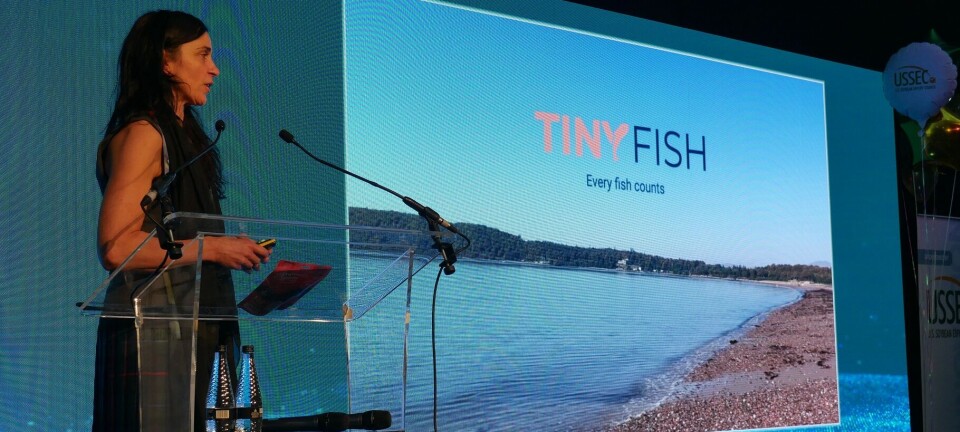
A big day for Tiny Fish
A start-up company formed to make use of euthanised salmon smolts and parr that would otherwise end up in landfill has won the aquaculture innovation award at the Global Seafood Alliance’s Responsible Seafood Summit being held at St Andrews, Scotland, this week.
Tiny Fish was chosen by audience vote ahead of two other finalists - Ace Aquatec, which has developed a state-of-the-art biomass camera, and Seaqure Labs, which produces a fungal-based aquafeed ingredient.
Not all fish bred for the Scottish salmon industry make it to the grow-out stage in sea pens, with those that are judged likely to perform poorly at sea culled. This used to be done with an overdose of anaesthetic, but that method rendered the fish unfit for consumption. Instead, the Scottish industry is now culling its unwanted smolts with an in-water electric stunner, a method which doesn’t taint the fish and means they can be used for human or animal consumption.
Tiny Fish collects and freezes the smolts and has been selling some to a pet food manufacturer, as well as a zoo and aquariums. The company, co-founded and run by Jarl van den Berg, boss of smolt producer Landcatch, and fish pathology expert Teresa Garzon, is hoping to gain funding for a gutting machine that would make it practical to supply the food service sector.
The GSA also presented a fisheries innovation award, which was also chosen by attendees to the summit.
This award went to Genus Wave, which has developed an acoustic startle response device that deters marine mammals without harming them or cetaceans. The device has been used to keep sea lions and seals away from fishing nets in Devon, and in Alaska, and from salmon pens in Scotland in a trial.
The other finalists were Global Fishing Watch, which helps authorities determine whether vessels that have time gaps in their tracking signals have been involved in illegal, unreported or unregulated fishing, and Green Iceberg, a Norwegian company that has developed a form of ice that it says is better for keeping fish fresh.
According to the company, its “PicoICE” – made from sea water - is a picoscopic silky-ice technology that drastically reduces bacterial growth and spoilage, and is also cheaper to produce than flake ice.






















































